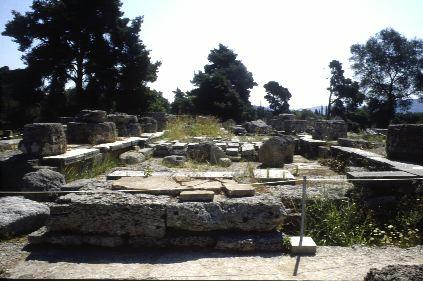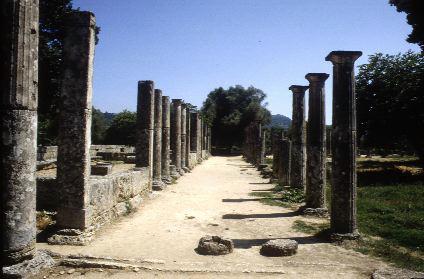





Frequently Asked Questions about the Ancient Olympic Games
- Where did the Olympic games come from?
- Why were they held at Olympia?
- Were there other contests like the Olympics?
- Who could compete in the Olympics?
- Were women allowed at the Olympics?
- How were the athletes trained?
- What prizes did Olympic victors get?
- Who were the Olympic judges?
- What was the penalty for cheating?
- Where did the marathon come from?
- When did the ancient games begin and when did they end?
Why were they held at Olympia?

Photograph by Michael Bennett
Olympia was one of the oldest religious centers in the ancient Greek world. Since athletic contests were one way that the ancient Greeks honored their gods, it was logical to hold a recurring athletic competition at the site of a major temple.

Also, Olympia is convenient geographically to reach by ship, which was a major concern for the Greeks. Athletes and spectators traveled from Greek colonies as far away as modern-day Spain, the Black Sea, or Egypt.
An international truce among the Greeks was declared for the month before the Olympics to allow the athletes to reach Olympia safely. The judges had the authority to fine whole cities and ban their athletes from competition for breaking the truce.

Photograph by Michael Bennett
The Spartans once invaded Elis (the territory which included Olympia) after the Olympic truce had been declared. The Eleans demanded a large fine based on the number of soldiers in the advancing army and refused to allow any Spartan competitors during that Olympiad.
To read more about these topics, see Further Resources.
This exhibit is a subset of materials from the Perseus Project database and is copyrighted. Please send us your comments.